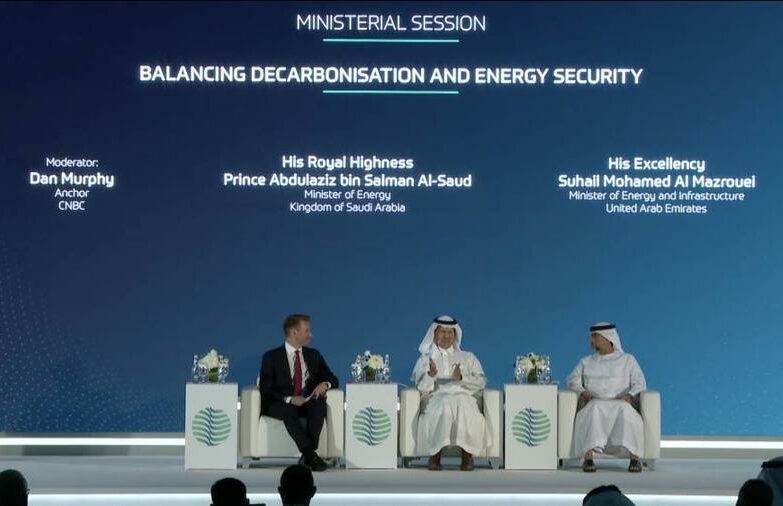Senior ministers from the Organization of the Petroleum Exporting Countries (OPEC) have responded to new US legislation aimed at regulating its production, saying such efforts would bring more chaos to energy markets.
Last week, the US Senate Judiciary Committee approved a bill known as “NOPEC” that would subject OPEC member states and its partners to accountability under antitrust laws for coordinating a supply cut that raises global oil prices.
Al Mazrouei
UAE Energy Minister Suhail Al Mazrouei told CNBC on the sidelines of the International Utilities Conference in Abu Dhabi that OPEC is being unfairly targeted because of the energy crisis, and that the moves of American lawmakers to disrupt the production system in place may lead to a rise in oil prices by up to 300 percent.
Al Mazrouei added, “If you obstruct this system, you need to monitor what you order, because a chaotic market will lead to a 200 percent or 300 percent increase in prices that the world cannot afford.”
Al-Mazrouei stressed that it is not wise to introduce a law like “NOPEC” now.
On the other hand, he stressed that the “OPEC +” alliance is doing its part to meet global demand amid ongoing geopolitical pressures, especially the war in Ukraine.
“OPEC + cannot replace 100 percent of the world’s needs”
He said, “We at OPEC + cannot replace 100 percent of the world’s needs.. However much we produce, will be our share. In fact, I bet we do much more than that.”
He explained that the high margins of oil refining, not just the price of crude, raise fuel costs for consumers, adding that the figures show that the oil market is balanced.
He added, “We must avoid any chaos in the oil markets, such as the one that occurs in the gas market.”
Al-Mazrouei explained that “high volatility is not due to supply and demand, but rather because some do not want to buy certain materials, and dealers take time to move from one market to another,” referring to efforts to avoid buying Russian crude.
Prince Abdulaziz bin Salman
Al-Mazrouei was joined by Saudi Energy Minister Prince Abdulaziz bin Salman, who said that members of “OPEC” and outside it should work in cooperation to address the current energy crisis.
“I am very concerned about the overall energy system that exists today,” he said when asked about the NOPEC bill.
“The world needs to work collectively, responsibly and comprehensively to save us and save the global economy,” he added.
Prince Abdulaziz expressed his surprise at focusing on the high oil prices and not on the prices of gasoline or diesel or anything else.
Prince Abdulaziz bin Salman pointed out that the gap between crude oil prices and the prices of jet fuel, diesel and gasoline is about 60 percent in some cases, due to a lack of refining capacity.
Some analysts said that the speedy enactment of the law could lead to an unintended setback, including the possibility of other countries taking similar steps against the United States for reducing supplies of agricultural products to support domestic agriculture, for example.
“It’s a bad move to set policy while you’re in a state of anger,” said Mark Finley, a fellow at Rice University’s Baker Institute on global energy and oil, and an analyst and former director of the Central Intelligence Agency.








